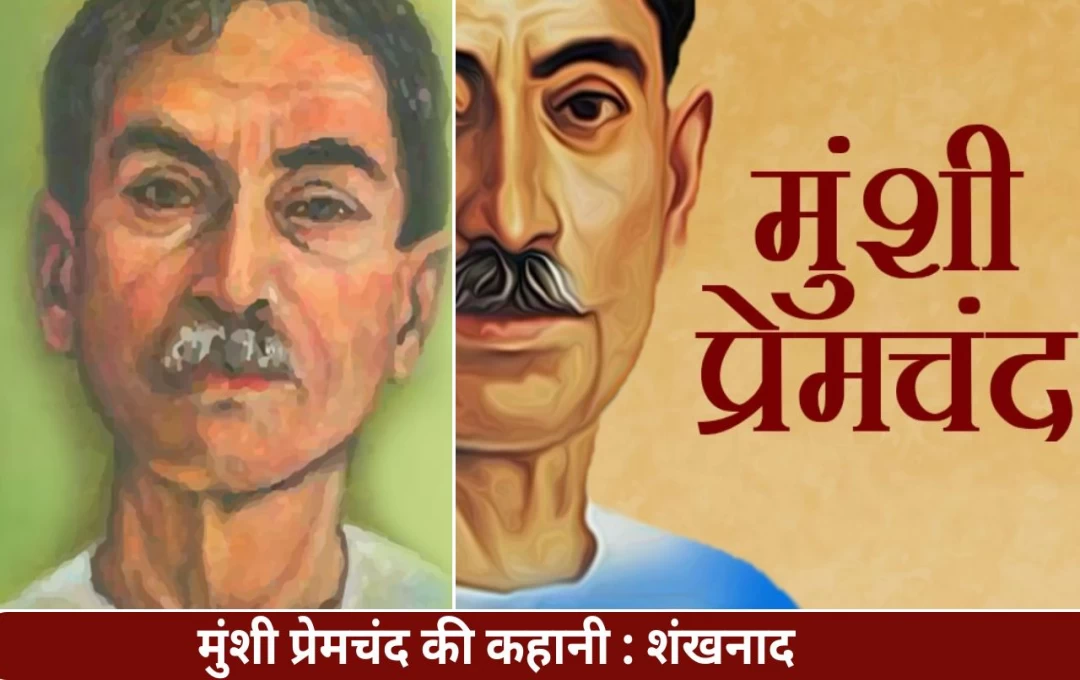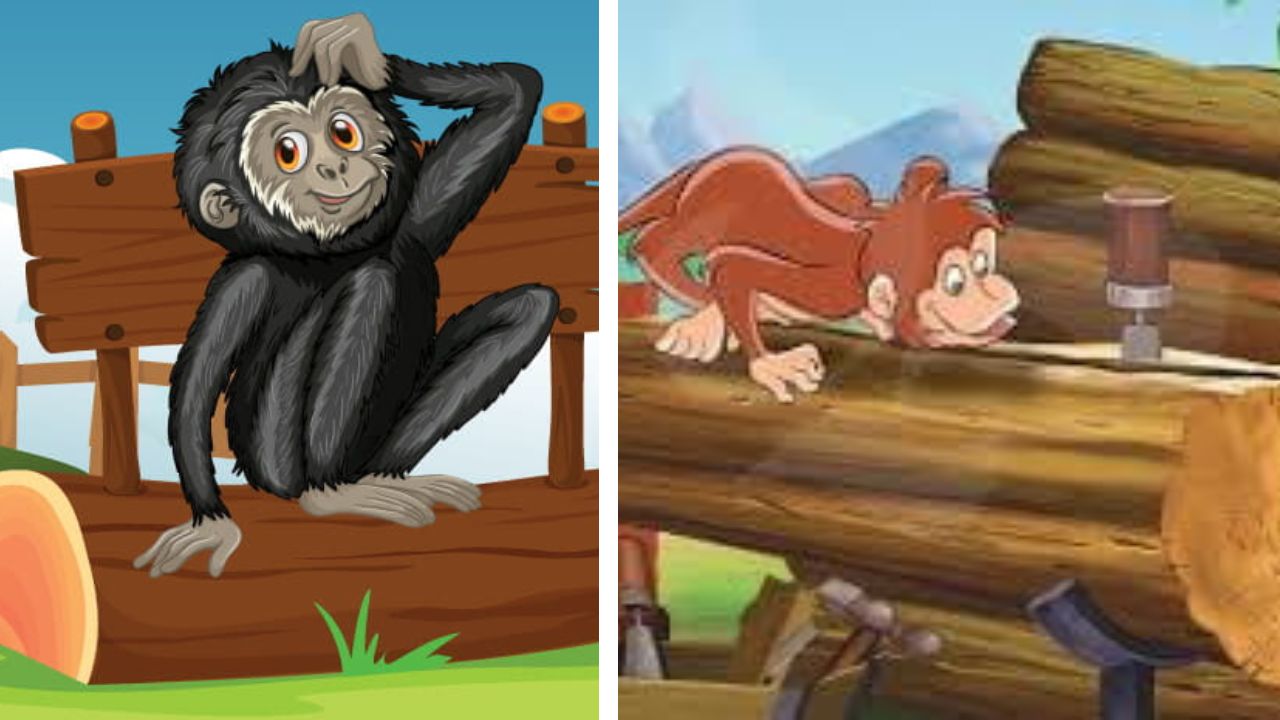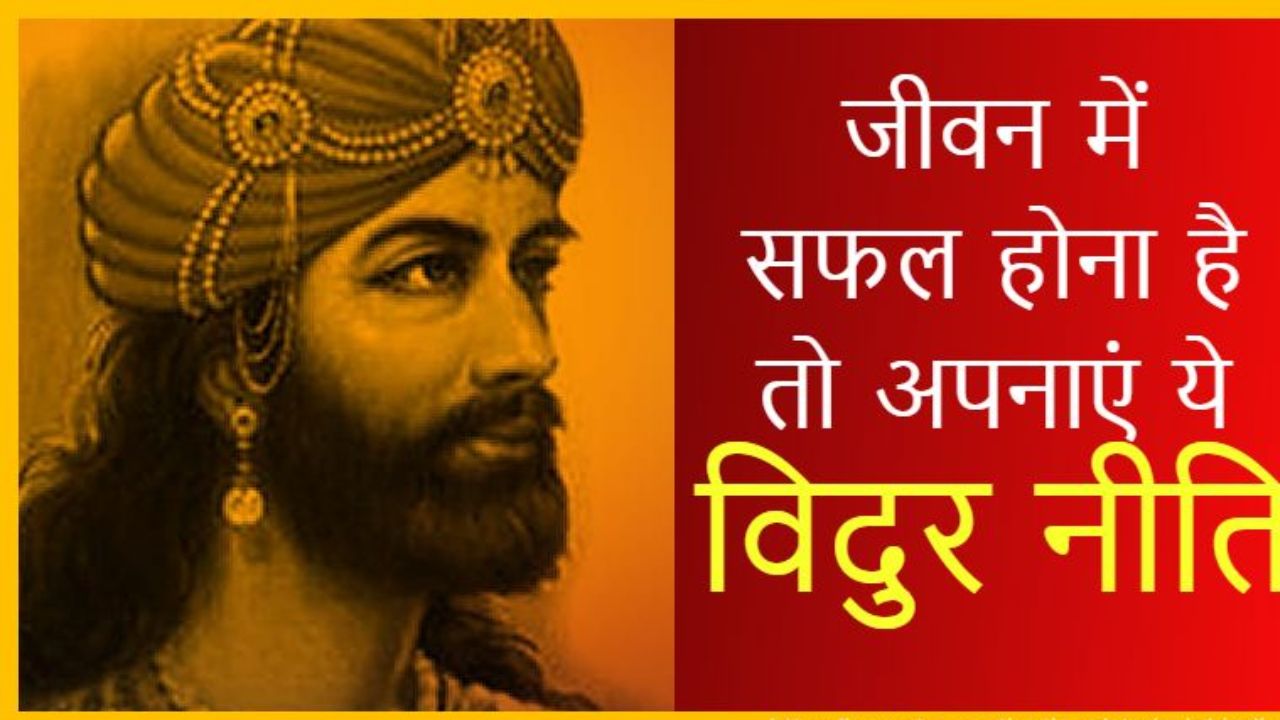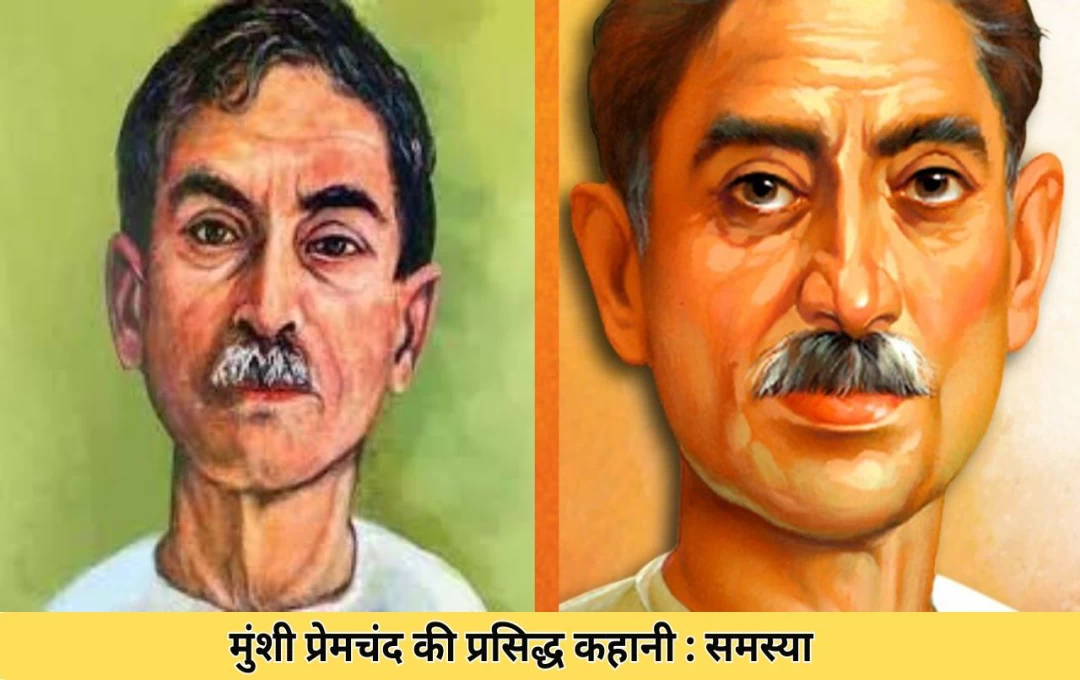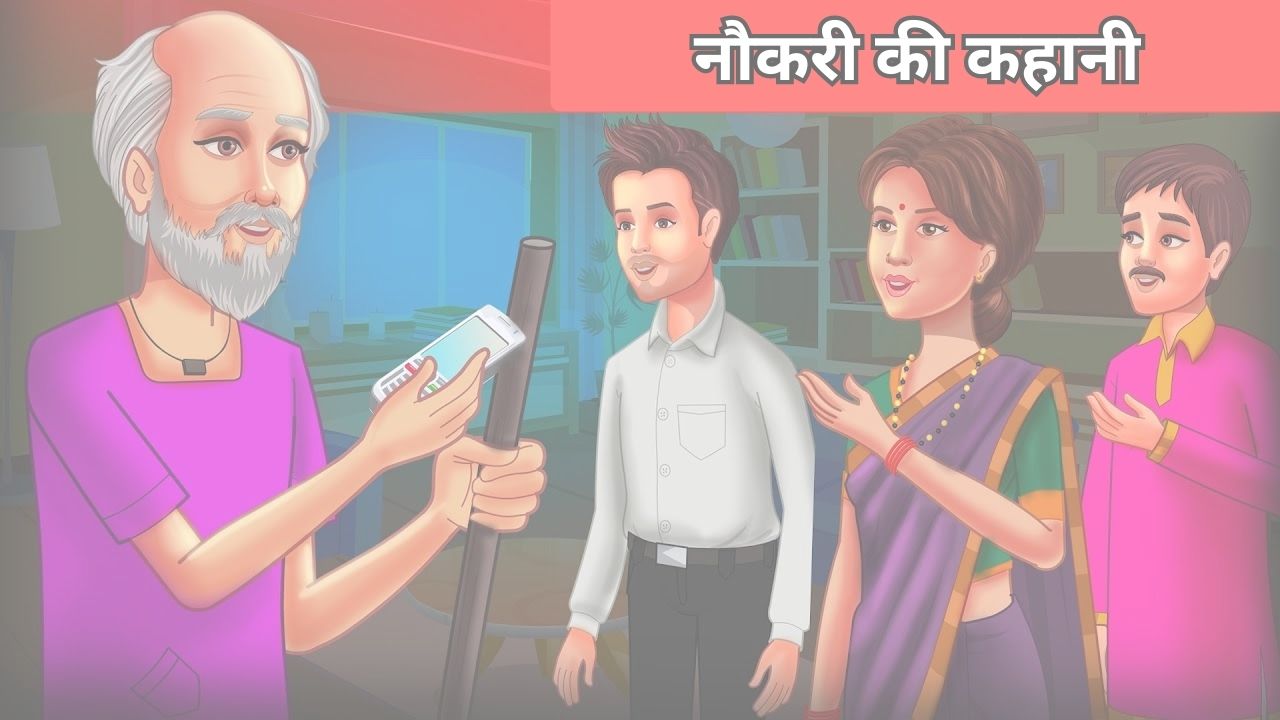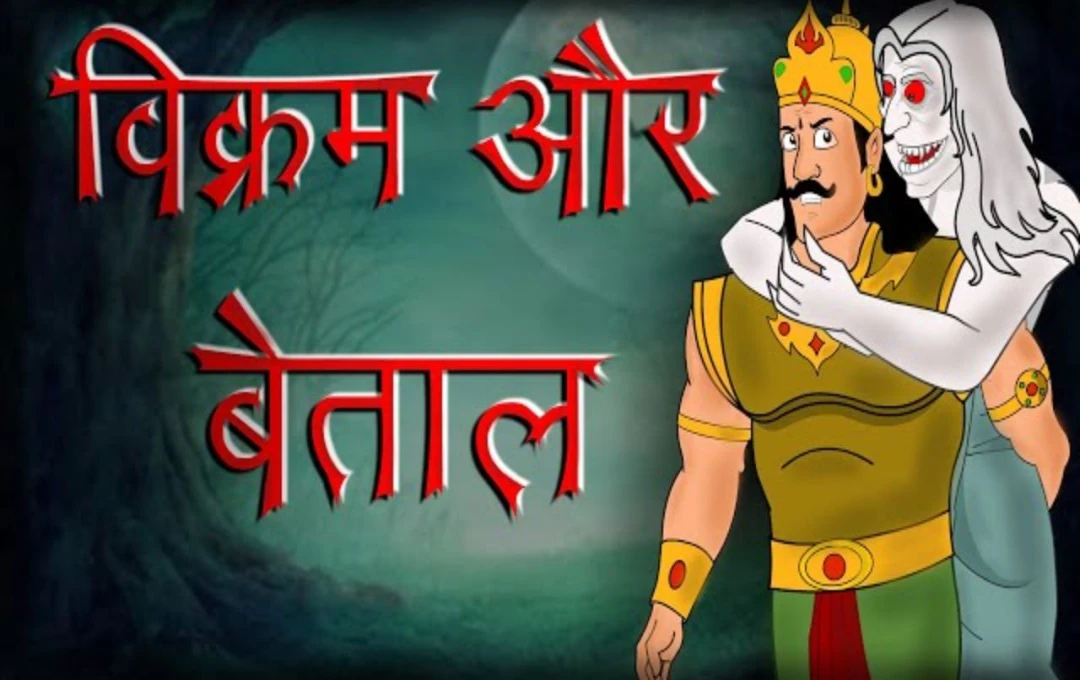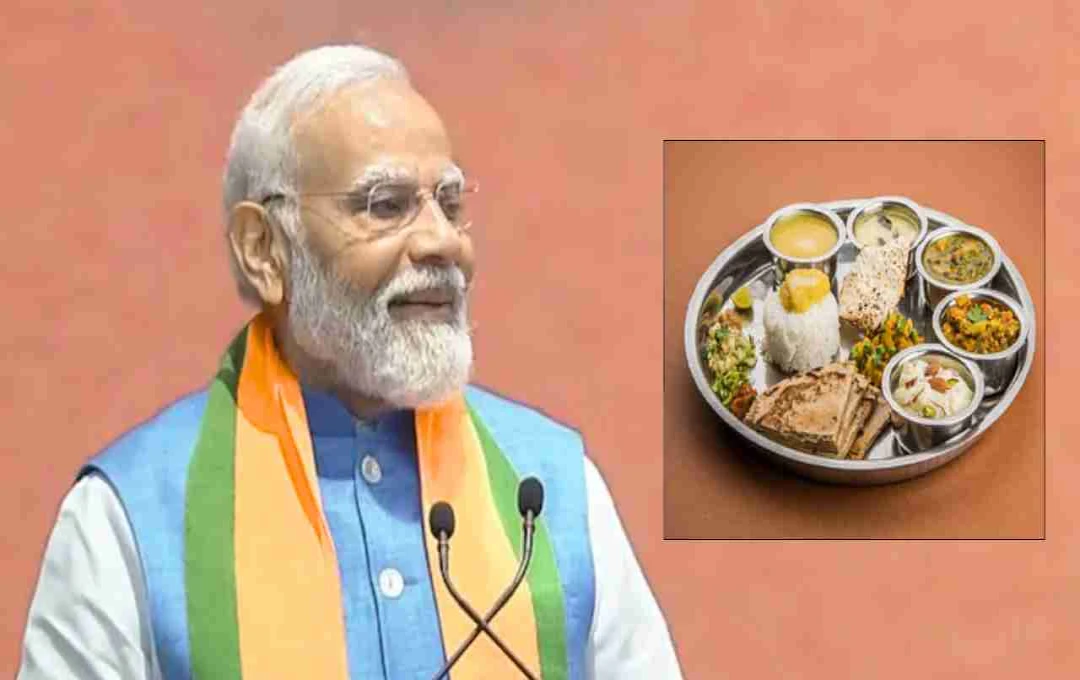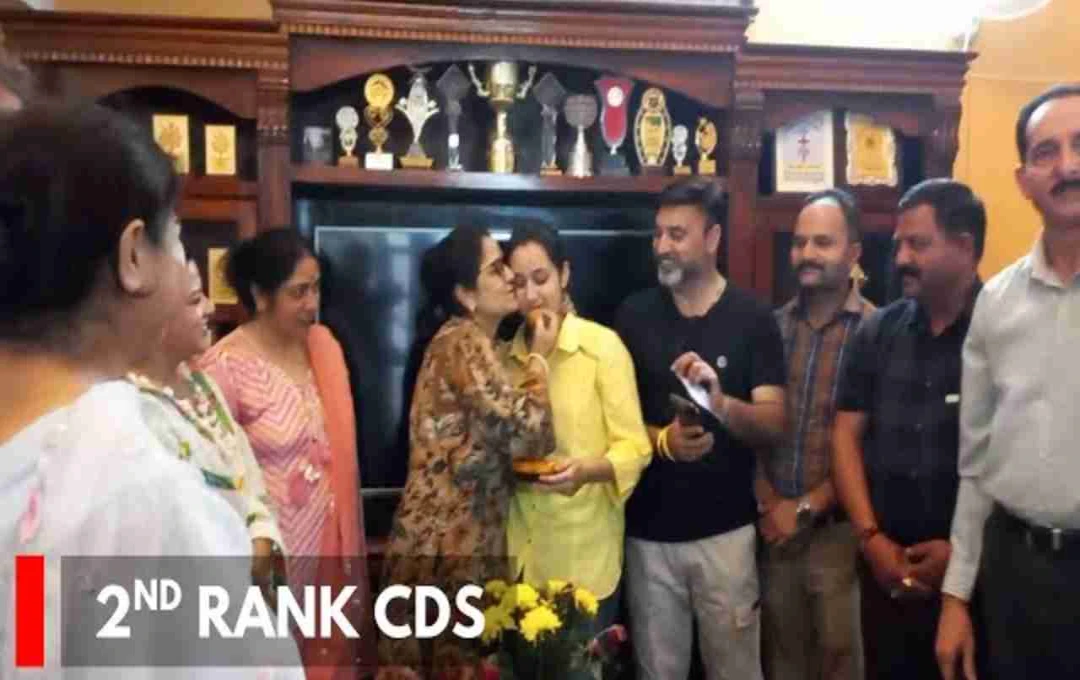Friends, our country has been the birthplace and abode of countless great men and women throughout the ages—rishis, munis, poets, writers, musicians, and many more, all brimming with exceptional qualities. The thousands of works created by these luminaries are invaluable. Today's youth, however, seems lost in this digital age, drifting further and further from our heritage and precious treasures. subkuz.com consistently strives to bridge this gap, bringing you not only these invaluable treasures but also entertaining stories, news, and information from India and around the world. Presented here is one such invaluable and inspiring story by Munshi Premchand.
The Conch Shell's Sound (Shankhnaad)
Bhanu Chaudhary was the headman of his village, held in high regard. The Daroga (police officer) wouldn't dare sit on the ground without his permission. Chaudhary Sahib commanded such respect that not a leaf could stir in the village without his consent. Any incident, be it a mother-in-law/daughter-in-law dispute or a land quarrel, was sufficient for Chaudhary Sahib to act as a judge. He'd immediately arrive at the scene, conduct an investigation, consider all relevant aspects—witnesses, evidence, and legal procedures—and deliver a verdict from his own court. Nobody ever needed to go to a formal court. Of course, Chaudhary Sahib did charge a fee for his services. If, due to some difficulty, the fee was delayed, chaos would ensue in the village; for his patience and the Daroga's wrath were intimately connected. In short, everyone, friend or foe, remained wary of Chaudhary Sahib.
Chaudhary Sahib had three capable sons. The eldest, Bittoo, was a well-educated man, skilled in legal matters and adept at manipulating the system. He signed documents for the postman, wore shirts instead of kurtas (traditional shirts), and occasionally smoked cigarettes, adding to his perceived sophistication. While these habits displeased the old Chaudhary, he was helpless, as Bittoo handled all legal affairs. He was a walking embodiment of the law, quoting legal sections effortlessly and a master at creating favorable witnesses. The middle son, Shah Chaudhary, was an agriculture department official—not very intelligent, but incredibly hardworking. He could cultivate crops where others couldn't. The youngest son, Gumaan, was a hedonist and a troublemaker. During Muharram, he'd beat the drums so loudly that it would nearly burst eardrums. He was passionate about fishing and possessed a melodious singing voice, often playing the *khanjari* (a percussion instrument). He loved wrestling, traveling miles to participate, yet his family remained unsympathetic to his pursuits, viewing him as a lost cause. His father and brothers considered him a barren field. Scolding, education, advice, affection, and pleas—nothing affected him. Only his sisters-in-law still held onto hope, trying various methods to reform him; but indolence is a disease with no cure. There was hardly a day that Gumaan didn't face harsh words from his sisters-in-law. These bitter rebukes occasionally stung his hardened heart, but the wound never lasted long. By dawn, the pain, along with the fatigue, would subside. One morning, after washing, he picked up his flute and headed towards the pond.
His sisters-in-law showered him with flowers, his father changed tactics, and his brothers glared, yet Gumaan, unyielding in his pursuits, would pass through them as if an elephant were moving through a pack of dogs. Countless attempts were made to set him on the right path. His father would advise, "Son, choose a path that brings you money and supports your family. How long will you rely on your brothers? I'm a ripe mango—I might fall today or tomorrow. Then how will you survive? Your brothers won't even ask; look at the state of your sisters-in-law. You have children too—how will you support them? You don't like farming; should I get you a job in the Kasturi factory?" Gumaan would listen impassively, remaining as unmoved as a stone deity.
His wife bore the brunt of this family's oppression, shouldering all the household chores—gathering cow dung, fetching water, grinding flour, and facing constant barbs from her sisters-in-law. After a prolonged period of estrangement from her husband, Gumaan showed some remorse. He approached his father, saying, "Get me a shop." The Chaudhary rejoiced, investing a substantial amount of money to open a cloth shop for Gumaan. Gumaan's fortunes seemed to have changed. He bought fine clothes, a luxurious turban; whether he made a profit or not was immaterial. The shop was open, good friends were around, the aroma of cannabis and the tunes of his *khayal* filled the air—
Let's go quickly, to the banks of the Yamuna, the naughty one.
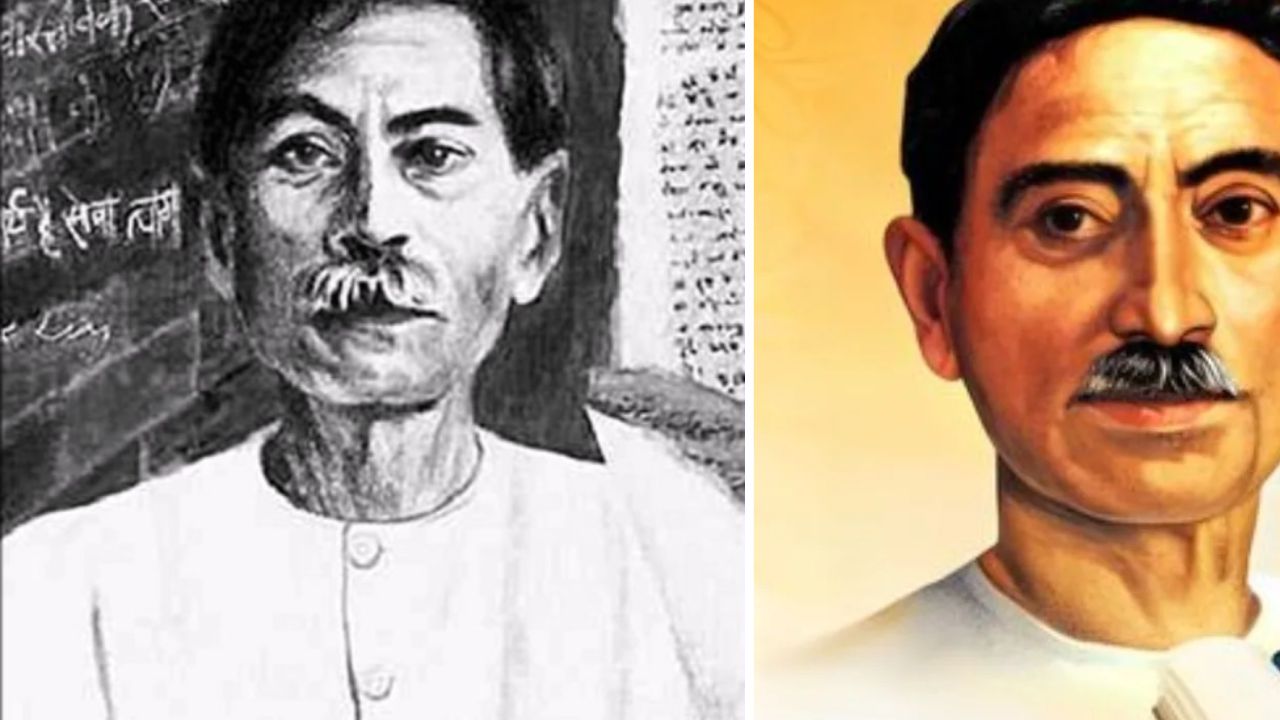
Three months passed peacefully. Gumaan spent lavishly, exceeding his initial investment and soon had nothing left but rags. The old Chaudhary was devastated, his sisters-in-law were distraught—"Oh my god! Our children and we are reduced to rags, not even a decent kurta, and that huge shop became this good-for-nothing's shroud! Who will we face? Who will we even look at?" But Gumaan remained defiant, returning home with the same demeanor. Bittoo, the lawyer, was furious at his brother’s extravagance. "I toil all day, and can’t even afford a decent kurta, while this useless fellow spends the day lounging, dressing up like a prince! I probably didn't even have these kind of clothes at my wedding!" Similar thoughts echoed in Shah's heart. This resentment festered until Bittoo's wife, in a fit of anger, collected Gumaan's clothes, doused them with kerosene, and set them alight. The clothes were quickly reduced to ashes. Gumaan wept; his brothers watched silently. The old Chaudhary witnessed this scene and despaired—this hatred will consume the entire family.
The flames were extinguished quickly, but the fire in their hearts remained. Finally, the old Chaudhary gathered everyone and began discussing how to salvage the situation. He addressed Bittoo, "Son, you saw how hundreds of rupees were lost in an instant. This lifestyle is unsustainable. You're intelligent and handle legal matters; find a way to save the family. I wanted to keep everyone together as long as I live, but God has other plans."
Bittoo's shrewdness paled before his wife's wisdom. He was still pondering a response when his wife spoke, "Father-in-law! Reasoning won't work anymore; we're heartbroken. The father's pain is greater, but the brothers feel it too. I say openly—Gumaan deserves a share of your earnings; pamper him, shower him with gifts. We don't have the strength or the heart for this. We'll build our own hut. Whatever is ours, we should get it. Divide the property. Let a few people laugh at us; how much longer can we bear this disgrace?"
The impact of her powerful speech was evident on Bittoo's face. He himself lacked the courage to propose such a solution so bluntly. He solemnly replied, "The property, whether jointly owned or individually, can be divided; there are precedents. The landlord has no right to claim sole ownership."
Then it was Shah's turn, but the simple farmer, accustomed to following his oxen blindly, couldn't articulate his thoughts on such a complex issue. He was hesitant, until his straightforward wife, following her sister-in-law's lead, bravely addressed the situation. "There's no other solution than what my elder sister-in-law said. Some toil endlessly yet live in poverty, lacking even clothes; while others live comfortably. We can't live in this unequal world."
Shah Chaudhary wholeheartedly supported the proposal. The old Chaudhary turned to Gumaan, "Son, do you agree? It's not too late. This fire can still be put out. Work is valued by everyone; leisure by no one. Speak, what do you say? Will you take up some work or remain idle?"
Gumaan lacked patience; he’d always ignored such discussions. But his brothers' unity angered him. He said, "I agree with my brothers. I want to escape this mess. I neither approve nor disapprove. Let those grind the mill who are destined to! My fate lies in leisure; why should I put my head in a mortar? I don't ask anyone to work for me. Why are you all after me? Mind your own business. I don't lack half a seer of flour."
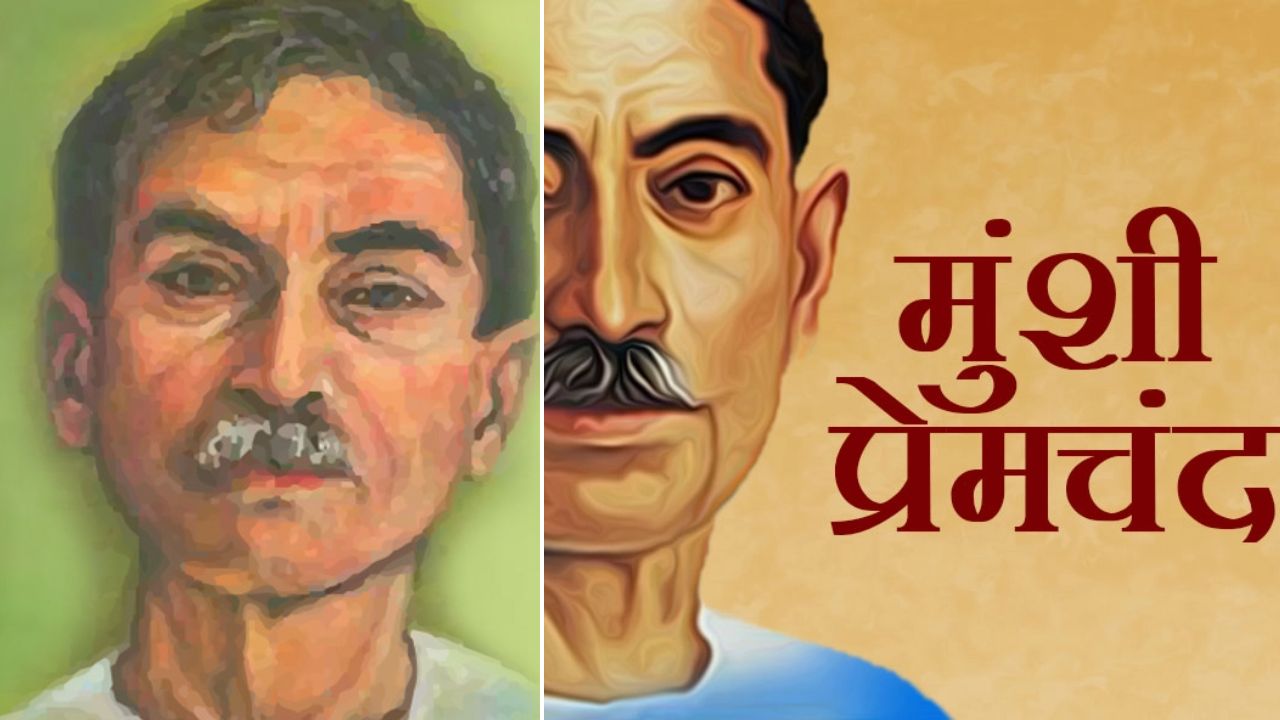
Such meetings had happened many times, yet, like many social and political gatherings in this country, they yielded no result. For a few days, Gumaan didn't eat at home, staying at Jatan Singh Thakur's gathering, a man of leisure. Eventually, the old Chaudhary persuaded him to return. The old cycle resumed.
Like mice in a house, even the children of the Chaudhary family were wise beyond their years. Their knowledge of fruits was immense; they knew which fruits could cause illness, but the allure of Gurudeen's cart was irresistible; the moment they heard his call, all their knowledge vanished. They would awaken, even from their sleep, upon hearing his approach. Gurudeen was an old, unkempt man who frequented the village weekly. His arrival was eagerly awaited by the children, who, without kindergartens, knew numbers and days of the week because of him. Gurudeen's voice was like a magic spell to the mischievous boys of the village. His cart would attract such a swarm of children that even a horde of flies would flee. While he had sweets for the children, he had even sweeter words for their mothers. No matter how much a mother protested, claiming a lack of money, Gurudeen would quickly give sweets to both children, saying kindly, "Don't worry about the money, we'll meet again. Narayan gave you children; they have given me sustenance for my own children. Let's see them grow, and I will do my best to help them."
Regardless of whether Gurudeen's methods violated commercial norms or defied the proverb "cash on delivery, no credit," he never regretted his actions.
It was an auspicious day. The children waited anxiously for Gurudeen. Excited boys climbed trees, others ventured outside the village. The sun had traveled from east to west when Gurudeen appeared. The boys rushed towards him, pulling at his clothes. Some invited him to their homes. Bhanu Chaudhary's house was the first stop. Gurudeen unloaded his cart; a frenzy of grabbing sweets ensued; the women and children were in high spirits. A tableau of joy and sorrow, satisfaction and greed, envy and resentment, hatred and jealousy was enacted. Bittoo's wife emerged with her three children. Shah's wife appeared with her two. Gurudeen began his sweet talk, placing money in their purses and giving sweets and blessings. The children happily went home. If there was one child in the entire village who benefited most from Gurudeen's generosity, it was Gumaan's son, Dhan.
It was difficult for Dhan to watch his siblings happily eating sweets! They would tease him, flaunting the sweets. Poor Dhan cried and clung to his mother's sari, trying to get closer to the cart; but what could the helpless mother do? Her heart ached for her child. She had no money. She was frustrated with her misfortune, her sisters-in-law's cruelty, and most of all, her husband's uselessness. If her husband were not so worthless, she wouldn't have to endure this, she wouldn't be begging others for alms. She picked him up, comforting him, "Son, don't cry. Next time Gurudeen comes, I'll get you lots of sweets; I'll buy the best sweets from the market. You can eat as much as you want!" As she spoke, her eyes filled with tears. "Oh! This unfortunate day will come again! And I will have to make the same excuses! Alas, my dear child longs for Gurudeen's sweets, while no one at home has any compassion!" She was lost in these worries while Dhan continued crying. Unable to control him, his mother put him down and gave him a few slaps, angrily shouting, "Shut up, you brat! Do you think only you deserve sweets? You don't cry about your daily needs, but you cry for sweets!"
Gumaan, sitting at the doorway of his room, observed this scene closely. He loved his son dearly. The slaps stung his heart. He might have even intended it. The weaver strikes the thread to spin the cotton.
Just as fire is hidden in stone and water, so too are noble and gentle emotions concealed within the human heart, however cruel or hardened it may seem. Gumaan's eyes welled up. Tears often cleanse our hearts. He was awakened. He picked up his son, speaking compassionately to his wife, "Why are you so angry with the child? I'm to blame; punish me as you wish. If God wills it, people will respect me and my children in this house from tomorrow. You have awakened me forever, as if blowing a conch shell to guide me onto the path of righteousness."
This was an inspiring story by the great writer Munshi Premchand. We can learn many new things from this story. The entire subkuz team strives to bring inspiring stories to our visitors daily. Continue reading such inspiring and enlightening stories on subkuz.com.
